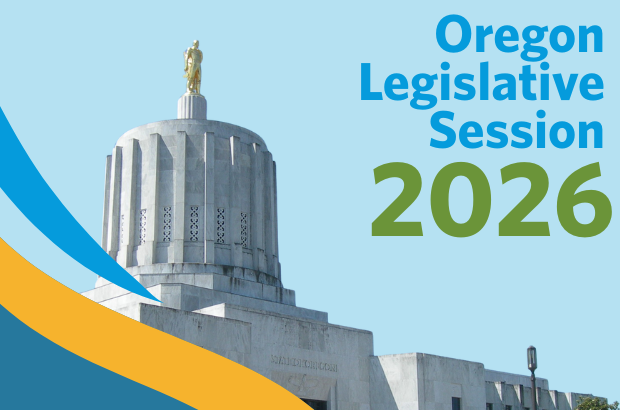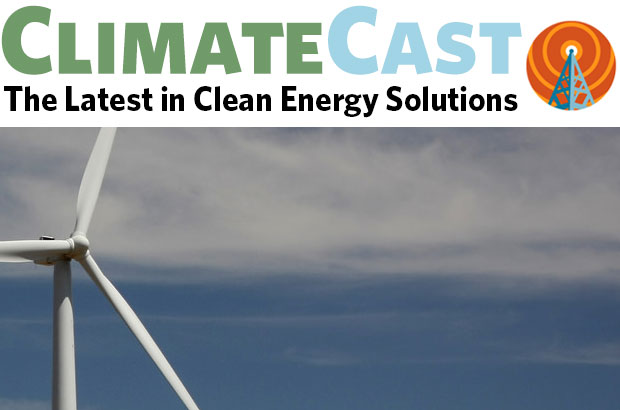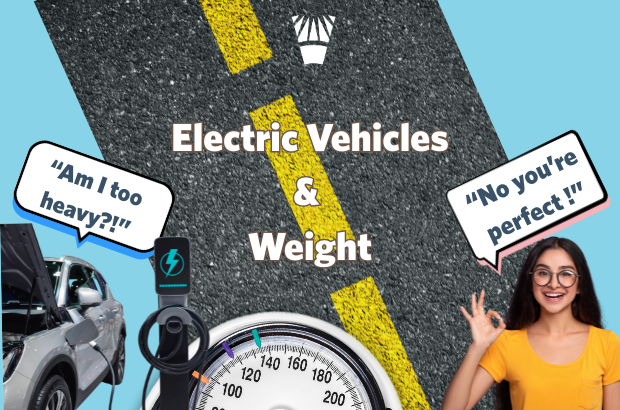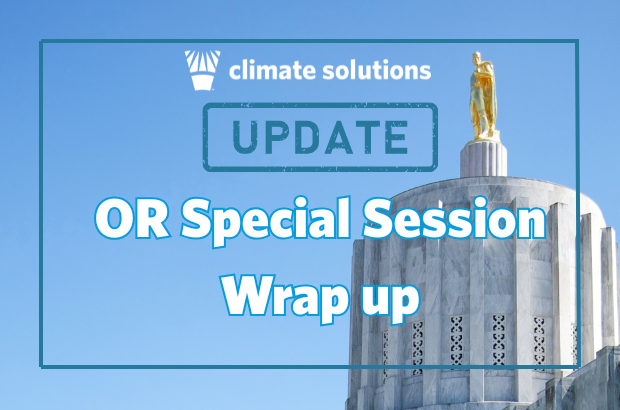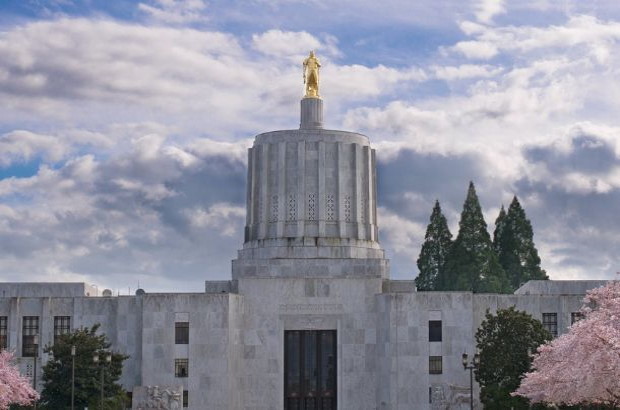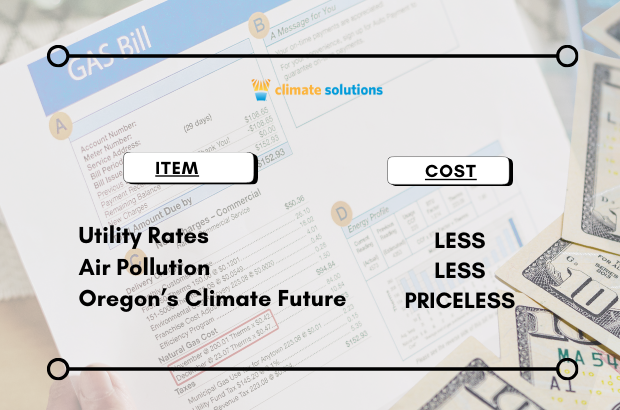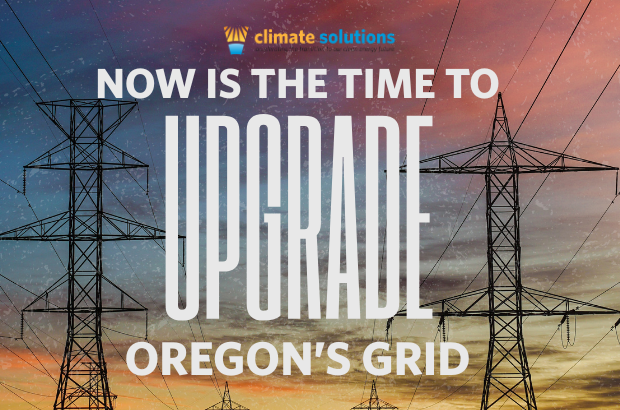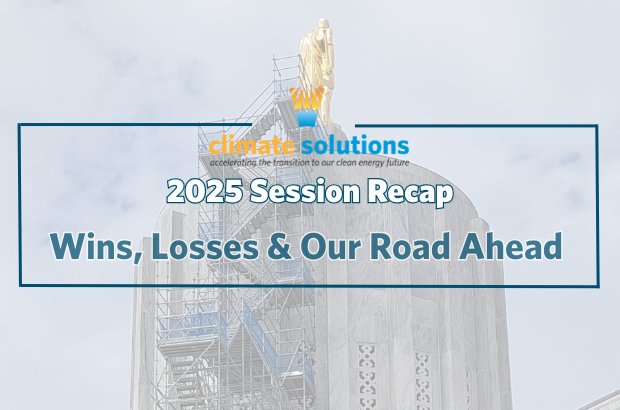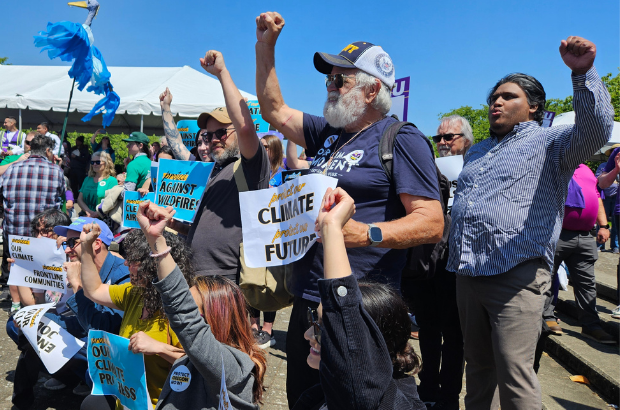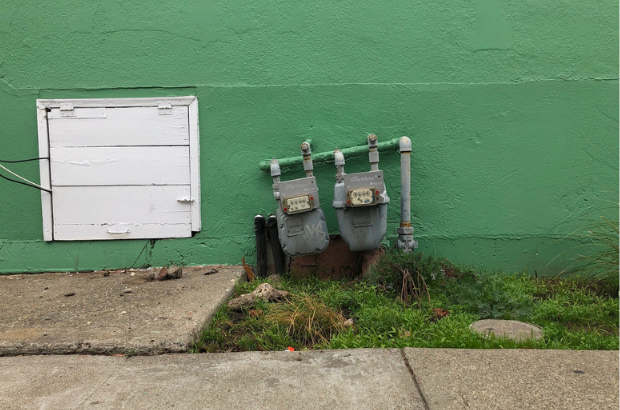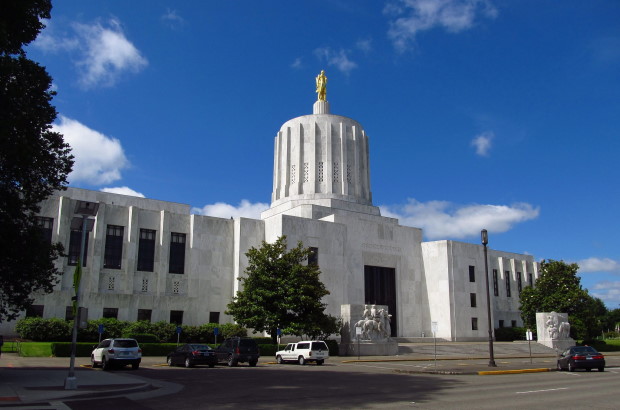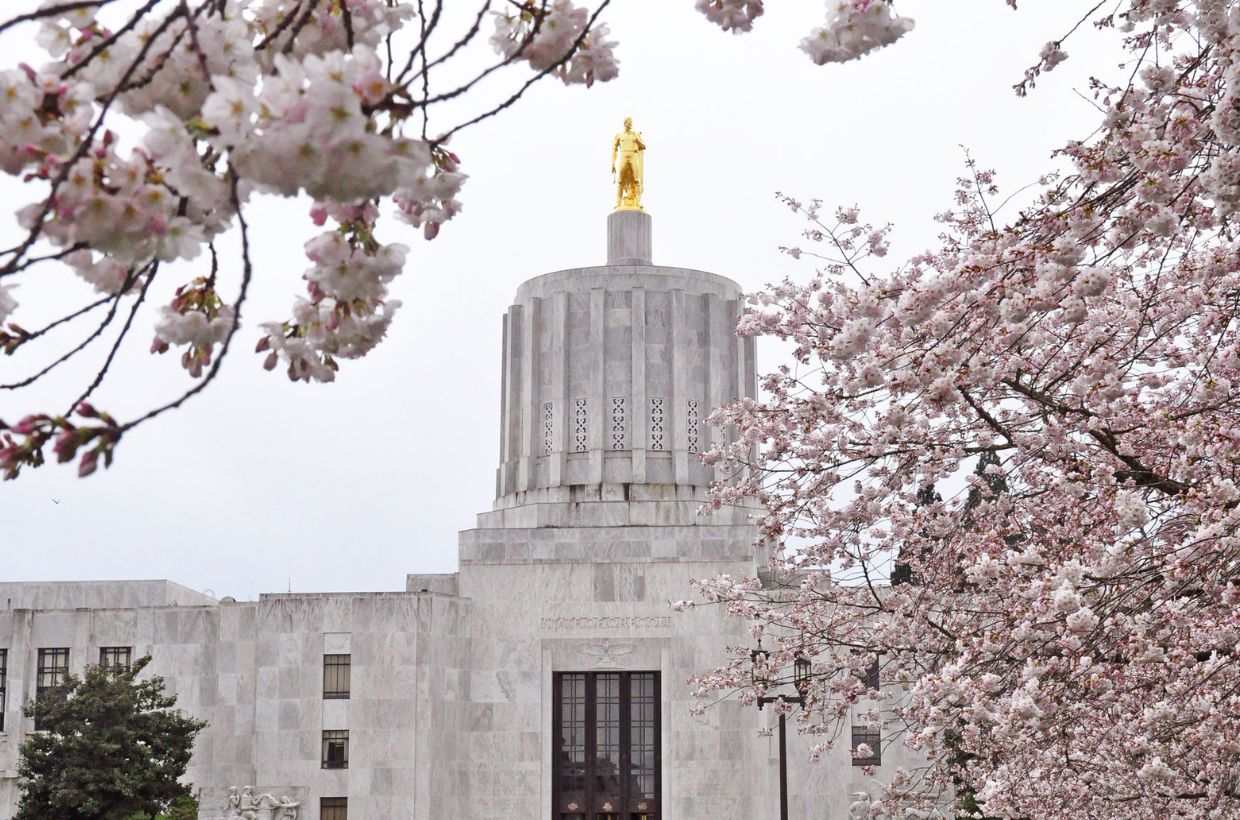Oregon State Government
by Nora Apter on
The long-awaited Energy Strategy report is here, providing a roadmap for a clean energy transition, and, with the first-of-its-kind climate executive…
by Nora Apter on
Announcing Oregon’s 2026 legislative short session priorities, which aim to double down on climate action that lowers household energy costs,…
by Jonathan Lawson on
Courts push back part of Trump's quixotic war on wind power. Oregon's got a new clean energy strategy, and the US government was a no-show at the…
by Brett Morgan on
EVs can weigh more, but is that missing the forest for the trees?
by Juan M. Muñoz Jiménez on
Join Climate Solutions and Building Resilience for a community event on Wednesday, December 10th to hear all about the dangers of methane in our…
by Brett Morgan on
Our north star is simple: we need to be investing in Oregon, not DOGE’ing essential safety, transit, and climate programs or discouraging the…
by Climate Solutions on
Oregon lawmakers approved a transportation funding stopgap in the special session that ended Monday.
by Claire Prihoda on
In recent rate cases, we have secured big wins for customers and the climate! This spring, we reached an agreement with Avista Gas to reduce climate…
by Joshua Basofin on
The grid is the ‘superhighway’ on which electricity travels. It is a vast network of transmission lines and infrastructure that delivers the…
by Joshua Basofin on
Last week, Governor Kotek signed two bills into law, HB 2065 and HB 2066, which will create a process for developing community-owned microgrids.…
by Claire Prihoda on
Something is up, and unfortunately, it may be a higher utility bill for Oregon gas customers. In a time when communities are already bracing for…
by Nora Apter on
Oregon’s 2025 legislative session delivered mixed results for climate progress. Sound familiar? That’s because this is the second year in a row that…
by Claire Prihoda on
Oregon’s legislative session is almost over, and lawmakers have only passed one of nine critical bills in the Energy Affordability and Resilience…
by Claire Prihoda on
Oregon lawmakers have taken action to improve public oversight of gas utilities’ hydrogen “pipe dreams.”
by Brett Morgan on
After months of collective advocacy and engagement—and just 20 days remaining in session—the Legislature released its long-awaited Transportation…
Give for a brighter future
Connect
Join our email list to learn about what we do and how to get involved.
2025 OR Policy Notes
Stay tuned for further updates!

